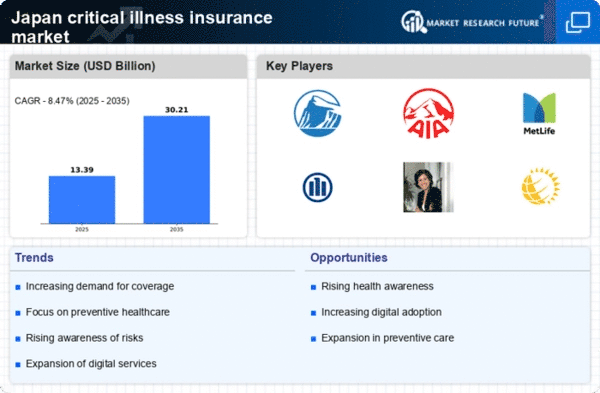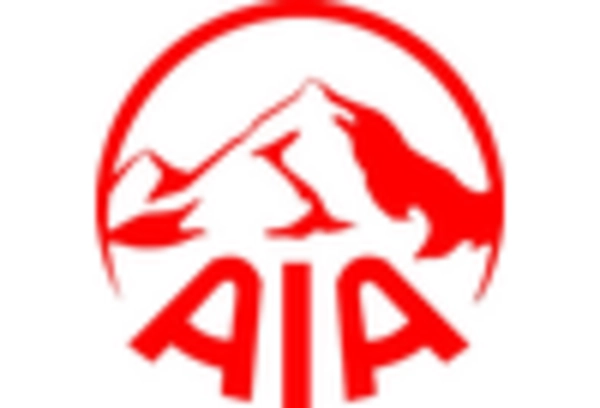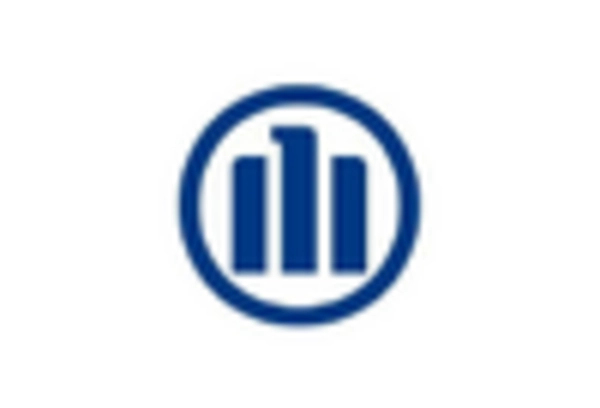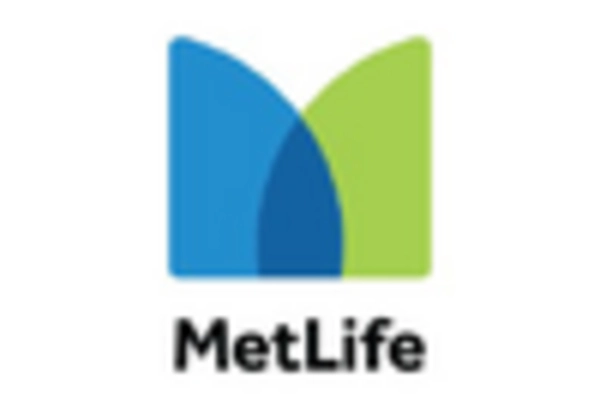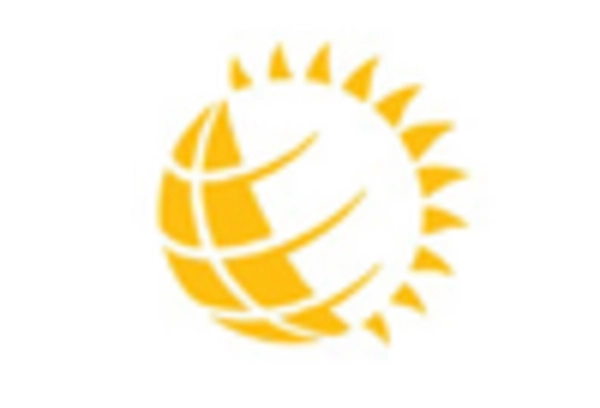Rising Healthcare Costs
The increasing costs associated with healthcare in Japan are driving the demand for critical illness-insurance market. As medical expenses continue to rise, individuals are seeking financial protection against unforeseen health issues. In 2025, healthcare expenditure in Japan is projected to reach approximately ¥42 trillion, which represents a significant burden on households. This financial strain encourages consumers to invest in critical illness insurance as a safeguard against high medical bills. The critical illness-insurance market is thus positioned to grow as more individuals recognize the necessity of having coverage that can alleviate the financial impact of serious health conditions. Furthermore, the government’s initiatives to promote health insurance literacy may further enhance the market's growth potential.
Changing Consumer Demographics
The evolving demographics in Japan are significantly impacting the critical illness-insurance market. With a notable increase in the number of working professionals and dual-income households, there is a heightened awareness of the need for financial security against health-related risks. As of 2025, it is estimated that around 50% of the population will be under 40 years old, a demographic that is increasingly prioritizing health insurance. This shift suggests that younger consumers are more likely to invest in critical illness coverage as part of their financial planning. The critical illness-insurance market is thus likely to adapt its offerings to cater to the preferences and needs of this emerging consumer base.
Government Initiatives and Regulations
Government policies and regulations play a crucial role in shaping the critical illness-insurance market. In Japan, the government has been actively promoting health insurance schemes to ensure that citizens have access to necessary medical care. Recent reforms have aimed at increasing the availability of insurance products that cover critical illnesses, thereby enhancing consumer confidence in these offerings. The introduction of tax incentives for policyholders may also stimulate market growth. As of 2025, it is estimated that around 30% of the population will have some form of critical illness insurance, reflecting the effectiveness of these initiatives. Such government support is likely to create a more favorable environment for the critical illness-insurance market.
Technological Advancements in Insurance
Technological innovations are reshaping the landscape of the critical illness-insurance market. The integration of digital platforms and data analytics is enhancing the customer experience and streamlining the insurance process. In Japan, insurers are increasingly utilizing telemedicine and mobile applications to facilitate policy management and claims processing. This shift towards technology is expected to attract a younger demographic, who are more comfortable with digital solutions. By 2025, it is anticipated that over 40% of policyholders will prefer managing their insurance through online platforms. Such advancements not only improve efficiency but also foster greater engagement with the critical illness-insurance market, potentially leading to increased sales and customer retention.
Increased Focus on Preventive Healthcare
There is a growing emphasis on preventive healthcare in Japan, which is influencing the critical illness-insurance market. As awareness of health risks rises, individuals are more inclined to seek insurance that covers critical illnesses. This trend is supported by the fact that approximately 60% of Japanese adults engage in regular health check-ups, which can lead to early detection of potential health issues. Consequently, the critical illness-insurance market is likely to benefit from this proactive approach to health management. Insurers are responding by offering products that not only provide coverage but also promote wellness and preventive measures, thereby aligning with consumer preferences for comprehensive health solutions.


